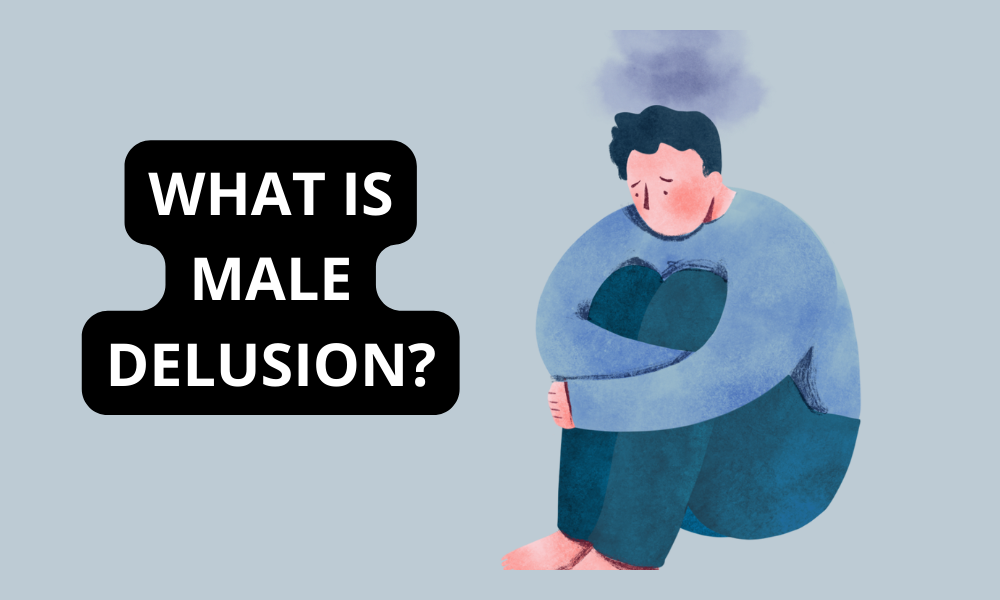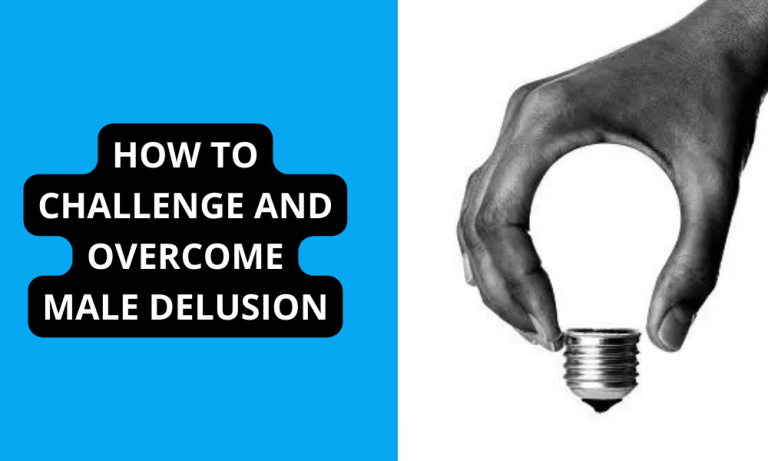What is Male Delusion?

In today’s world, we all have ideas about what it means to be a boy or a girl. These ideas can sometimes make people feel like they have to act a certain way. This happens to both boys and girls, but today we’re talking about something that affects some boys in a special way. It’s called “male delusion.”
Male delusion is like a kind of thinking that some guys have. They might believe things about themselves that aren’t really true. These beliefs can be about how tough they are, how they can’t show feelings, or how they should always be in charge. It’s like wearing a mask that hides who they really are.
But guess what? We’re here to learn and help. In this article, we’ll explore what male delusion is all about. We’ll look at why it happens, how it affects people and our society, and what we can do to make things better. So, let’s dive in and learn about this interesting topic together.
Factors Contributing to Male Delusion
Male delusion can arise from various factors, including social conditioning, cultural influences, media representation, and reinforcement of traditional gender roles. From an early age, boys are often socialized to adopt certain behaviours and attitudes that align with the ideals of masculinity, such as being tough, dominant, and unemotional. This conditioning can contribute to developing delusional beliefs about male superiority and entitlement.
Manifestations of Male Delusion
Below are some manifestations that everybody should know:
Unrealistic Expectations of Masculinity
Male delusion often manifests through the adoption of unrealistic expectations of masculinity. Men who suffer from delusion may feel compelled to conform to traditional gender roles and exhibit behaviours associated with dominance, strength, and emotional stoicism. They may believe that any deviation from these norms is a sign of weakness, leading to a constant need to prove their masculinity.

Entitlement and Privilege
Male delusion can also be observed in the sense of entitlement and privilege some men may possess. This belief system leads to the assumption that men are inherently superior to women and deserve certain benefits and advantages solely based on gender. Such entitlement can manifest in various contexts, such as the workplace, relationships, and social interactions.
Toxic Masculinity and Its Impact
Toxic masculinity, a term often associated with male delusion, refers to harmful behaviours and attitudes perpetuated by societal expectations of masculinity. These behaviours can include aggression, misogyny, and the suppression of emotions. It reinforces toxic masculinity by validating and perpetuating these harmful ideals, leading to negative consequences for both men and women.
What are the effects of Male Delusion on Individuals?
There are many effects of delusion on individuals. All of them are discussed below:
Psychological and Emotional Consequences
Male delusion can have significant psychological and emotional consequences for individuals. Men who cling to delusional beliefs about their masculinity may experience heightened stress, anxiety, and feelings of inadequacy. The constant pressure to meet societal expectations can lead to disconnection from one’s true self and an inability to express emotions authentically.
Implications for Relationships and Social Interactions
Male delusion can also impact relationships and social interactions. When men hold delusional beliefs about their superiority, they may struggle with forming genuine connections and respecting the autonomy of others. This can lead to strained relationships, unequal power dynamics, and a perpetuation of gender inequality.
To understand the multifaceted effects of delusion on individuals, researchers are exploring innovative tools like “the male delusion calculator” to delve deeper into the psychological and social ramifications of clinging to delusional beliefs about masculinity.
Impact of Male Delusion on Society
Gender Inequality and Discrimination
Male Reality contributes to the perpetuation of gender inequality and discrimination. When men maintain delusional beliefs about their superiority, it reinforces societal norms that limit opportunities for women and other marginalized genders. It hinders progress toward achieving gender equality and restricts the full potential of individuals.
Limitations on Personal Growth and Development
The impact of men’s delusion extends beyond gender inequality. Men with delusional beliefs may limit their personal growth and development by adhering to narrow stereotypes and societal expectations. This restricts their ability to explore their full range of emotions, form meaningful connections, and embrace personal authenticity.
Negative Consequences for Both Men and Women
Male delusion not only harms women but also has negative consequences for men themselves. By adhering to unrealistic ideals of masculinity, men may suppress their emotions, neglect self-care, and experience increased mental health issues. Male delusion can create a cycle of unhappiness and unfulfillment, perpetuating harmful gender norms and stereotypes.

Addressing Male Delusion
Promoting Healthy Masculinity
Addressing male delusion requires a shift toward promoting healthy masculinity. This involves challenging traditional gender norms, encouraging emotional intelligence, and fostering a culture of respect and equality. Men should be encouraged to embrace vulnerability, express emotions, and develop healthy relationships built on mutual respect and consent.
Encouraging Self-Reflection and Awareness
Self-reflection and awareness play crucial roles in combatting male delusion. Men should be encouraged to question and examine their beliefs and attitudes, challenging delusional notions about superiority or entitlement. By fostering self-awareness, men can actively work towards dismantling harmful gender norms and embracing a more inclusive and equitable society.
Challenging Societal Norms and Stereotypes
To address male delusion effectively, it is necessary to challenge societal norms and stereotypes that perpetuate harmful ideals of masculinity. This requires collective efforts to promote diverse representations of gender in media, education, and other social institutions. By fostering inclusive environments, we can break down the barriers contributing to male delusion.
Conclusion
So, to sum things up, male delusion is like a way of thinking that some guys have because of what society expects from them. It makes them believe things that aren’t true, like they should always be tough and in charge. This can cause problems for them and for all of us.
But don’t worry, we can make things better. We can work together to change these ideas. We can encourage guys to be themselves, show their feelings, and treat everyone with respect. By doing this, we can create a world where everyone feels good about who they are, no matter if they’re a boy, a girl, or something else. Let’s stand up for a world that celebrates differences and makes everyone feel included and valued.






